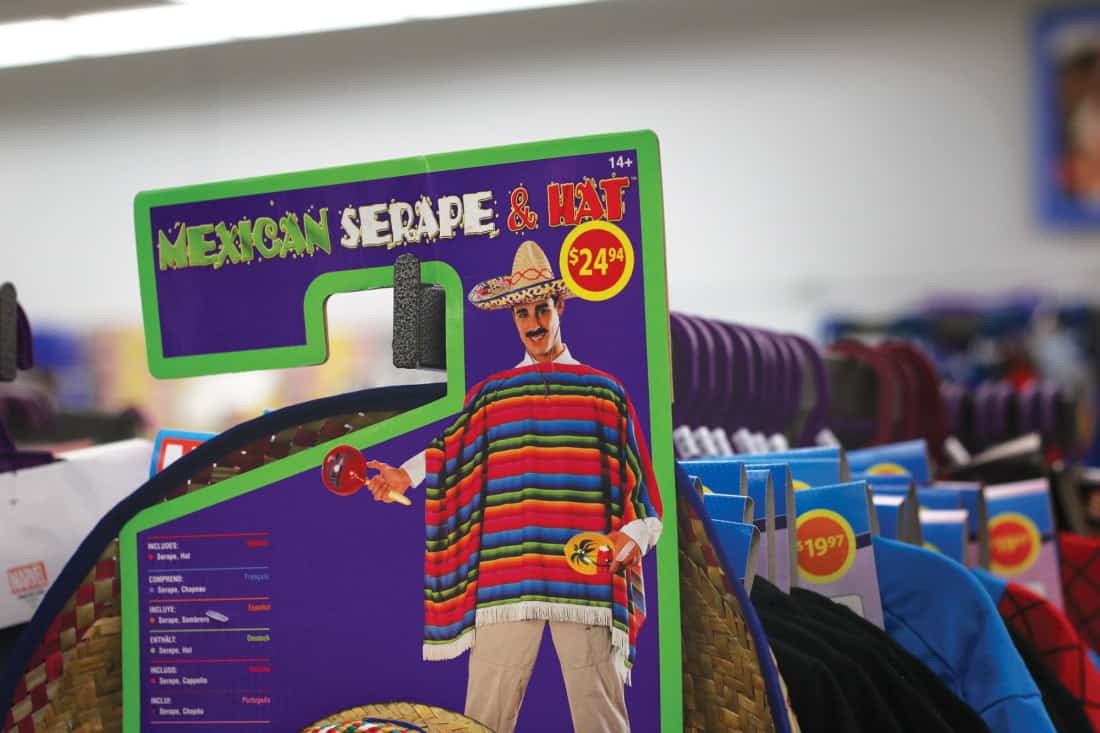As we get older and the concept of Halloween evolves, so do our choices for costumes. When it comes to cultural costumes however, what may be funny to you may be hurtful to others.
Halloween is a pretty funky concept. It has essentially amounted to a city wide block party, fueled by cheap snack-sized candies and weary parental supervision. But this quasi holiday takes on a much different mode of operation once that awkward gap of being too old to go door-to-door and too young to hit up the bars is finally closed.
While there are some people who love Halloween because of the ability to lose themselves in a costume or gory makeup, there is a growing culture of over-sexualization and a streak of culturally  and racially insensitive costuming that detracts from the true spirit of Halloween.
and racially insensitive costuming that detracts from the true spirit of Halloween.
This problem of cultural appropriation doesn’t just happen on Halloween however — and on May 5, 2014 in Saskatoon, I witnessed a similar situation.
This day, known as Cinco de Mayo, is a massive source of cultural pride for Mexicans but has been widely appropriated by the larger Saskatoon population as an excuse to drink cheap tequila, eat horribly inauthentic tacos and be generally dismissive of Mexican culture all together.
Last year, looking for some festive fun, some friends and I visited a tacky Mexican themed resort bar known to many students — the Crazy Cactus. I’m all for the gimmick that a local Mexican bar can provide but on that occasion, a costume contest initiated by the owners revealed negative stereotypes and cultural insensitivity.
The costume contest revolved around who looked the most “Mexican,” which resulted in a sea of ponchos, sombreros, fake mustaches and stereotypical Spanish accents. However, this costume contest simply furthered assumptions about Mexican people, their dress and their culture in negative ways.
This same lack of respect for cultural attire and accents is unfortunately all too present within our modern interpretation of Halloween. When an entire community — or in this case an entire nation — is reduced to a comic and stereotypical representation, the people of that culture are lumped into a single category.
This is most evident in the Caucasian segment of those participating in costuming, and while I will admit there are some blurred lines of what is politically correct and what is overkill, there are some obvious no-fly zones in terms of racially or culturally motivated costume ideas.
This is dangerous because most often, the traits that are expressed through these costumes have little or nothing to do with that culture at all. It shows not only a lack of education, but also of cultural respect.
The lack of respect towards the diversity of a culture is where the creation and perpetuation of harmful cultural stereotypes emerges from. We need to remember that the cultural and ceremonial costumes of certain groups should never be the basis for an insensitive costume that, at its core, looks to cause a comedic reaction.
When you get a laugh out of a costume that is culturally insensitive, it’s not the costume that is being laughed at, it’s the culture. As a rule of thumb, if you’re ever in doubt about a costume in terms of its cultural representations, ask yourself, “How would someone from the culture that my costume represents perceive my use of their culture?”
Better yet, ask yourself how you would respond to seeing someone wearing a costume that ridiculed your own heritage or cultural traditions. There are many wonderful and hilarious costumes to wear for this upcoming Halloween, so before making the decision to wear a provocative and possibly culturally insensitive costume, think about what that costume is saying about culture and what wearing that costume says about you.
—
Lee Bonham
Photo: Caitlin Taylor / Photo Editor
Leave a Reply